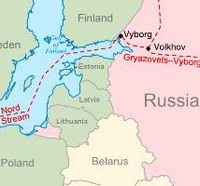(BRUSSELS) – Changes to the Gas Directive proposed Wednesday to ensure that all major gas pipelines entering EU territory comply with EU rules could prove an obstacle to the Russian-backed Nord Stream 2 project.
The aim of the amendment is to complete the existing Gas Directive (2009/73/EC) says the Commission.
A key aim is also to make clear – at a time when the EU’s dependency on imported natural gas is growing – that the core principles of EU energy legislation (third-party access, tariff regulation, ownership unbundling and transparency) will apply to all gas pipelines to and from third countries up to the border of the EU’s jurisdiction.
This, says the EU executive, will ensure that all major pipelines entering the EU territory comply with EU rules, are operated under the same degree of transparency, are accessible to other operators and are operated efficiently.
The amendment is also seen as a contribution to meeting EU goals for Europe’s gas market, which include increasing competition between gas suppliers and providing a boost to energy security in the EU.
Ensuring that all major pipelines wholly or partly located in EU territory are operated efficiently under a regime of transparent regulatory oversight will diminish conflicts of interests between infrastructure operators and gas suppliers, and guarantee non-discriminatory tariff setting.
The Commission is also proposing, in addition, to allow Member States to be able to grant existing cross-border pipelines certain derogations from the application of the Directive on a case-by-case basis, as long as such derogations are not detrimental for competition or security of supply.
The proposed changes now need to be agreed by the European Parliament and Council before they become law. The Commission is looking for swift adoption and implementation of these proposals.
EU dependency on imported natural gas is seeing as likely to continue due to falling domestic gas production. It is only partly offset by falling gas demand due to energy efficiency and decarbonisation policies.
The share of net gas imports as compared with the EU’s total gas consumption was 69.3% in 2015. The biggest gas importer to the EU is Russia (42% of overall imports in 2016), followed by Norway (34%), Algeria (10%) and imported LNG (14%). In 2016 gas imports were 12% higher than in 2015, driven by higher consumption, lower prices and falling domestic production.
Questions and Answers on the Commission proposal to amend the Gas Directive (2009/73/EC)


